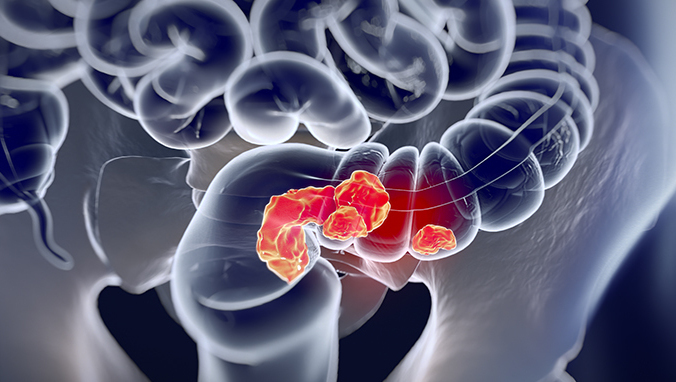Symptoms and treatment of cecum tumor
Cecal cancer is a malignant tumor that occurs in the gastrointestinal tract. The incidence of cecal cancer is second only to gastric cancer and esophageal cancer, and it is more common in people over the age of forty, and it is more common in men. The signs of cecal cancer include weight loss, anemia, abdominal pain, indigestion, and bloating. The treatment measures for cecum cancer include surgical treatment, radiotherapy and chemotherapy. 
Malignant tumor is one of the health hazards. As people''s living habits and dietary habits change, many people have a higher risk of cancer. Cecal cancer is a common malignant tumor with a high incidence. Among many malignant tumors, the incidence of cecal cancer is second only to gastric cancer and esophageal cancer, and most of them occur in men over 40 years old.
Although with the advancement of medical technology, the treatment level of cecal cancer is getting higher and higher, but people still need to be vigilant. So, how long can the cecum malignant tumor live? Let''s take a detailed understanding of the symptoms and treatment of cecal cancer.
Cecum cancer is a special type of colon cancer, named after the site of the disease in the cecum. The patient may have prominent indurations on the rectal mucosa or skin, which are usually painless. Some patients have no obvious symptoms, and some patients will have defecation problems. In the early stages of the disease, the patient had more bowel movements and had more frequent bowel movements but no fecal discharge. Some patients have symptoms of constipation, obvious discomfort and falling. As the condition worsens, the patient has symptoms of blood in the stool. Cecal cancer is sometimes misdiagnosed as hemorrhoids.
The treatment of cecum cancer includes chemotherapy, radiotherapy, surgery and so on. Surgical treatment is more suitable for patients with small tumors and cancer cells that have not metastasized. Radiation therapy is suitable for patients with advanced local cancer, and it is also suitable for palliative treatment of some patients. Although chemotherapy is a common method for the treatment of advanced cecal cancer, but the efficiency is not high, between 20%~40%. Chemical drugs have obvious toxic and side effects, and can also cause damage to normal tissue cells. Patients actively receive treatment and can prolong life.
Cecal cancer is a malignant tumor that poses a great threat to life. Once the diagnosis of cecum cancer is confirmed, it must be treated in time. During the treatment, patients should develop healthy eating habits and rest habits.
Related Articles

- Early Signs of Bladder Cancer
- What are the early symptoms of bladder cancer?
- 2020-12-17

- Dietary principles of patients with hyperlipidemia
- The main dietary principle of patients with hyperlipidemia is to control the continued rise of blood lipids and prevent serious cardiovascular and cerebrovascular accidents. In addition to th
- 2020-08-02

- Recognize childhood tics
- Typathia is mostly onset in childhood and adolescence. It is a disease characterized by tics or involuntary, repetitive, rapid, and movement twitching of muscles in one or more parts. In ad
- 2020-08-02

- Is bladder cancer infusion chemotherapy painful?
- A regular course of chemotherapy is recommended after bladder cancer surgery, followed by maintaining a happy mood and avoiding excessive stress. Secondly, when cancer patients receive tumor
- 2020-07-24

- Bladder cancer chemotherapy
- Chemotherapy is useful for bladder cancer, but there are many bladder cancer chemotherapy options, and the effect is different for patients with different stages. For patients with non-musc
- 2020-07-24

- What are the chemotherapy drugs for bladder cancer
- Chemical drug treatment is an important method and means for the treatment of bladder cancer. As we all know, the bladder is a hollow organ that stores urine. The outer wall is mainly compo
- 2020-07-24
